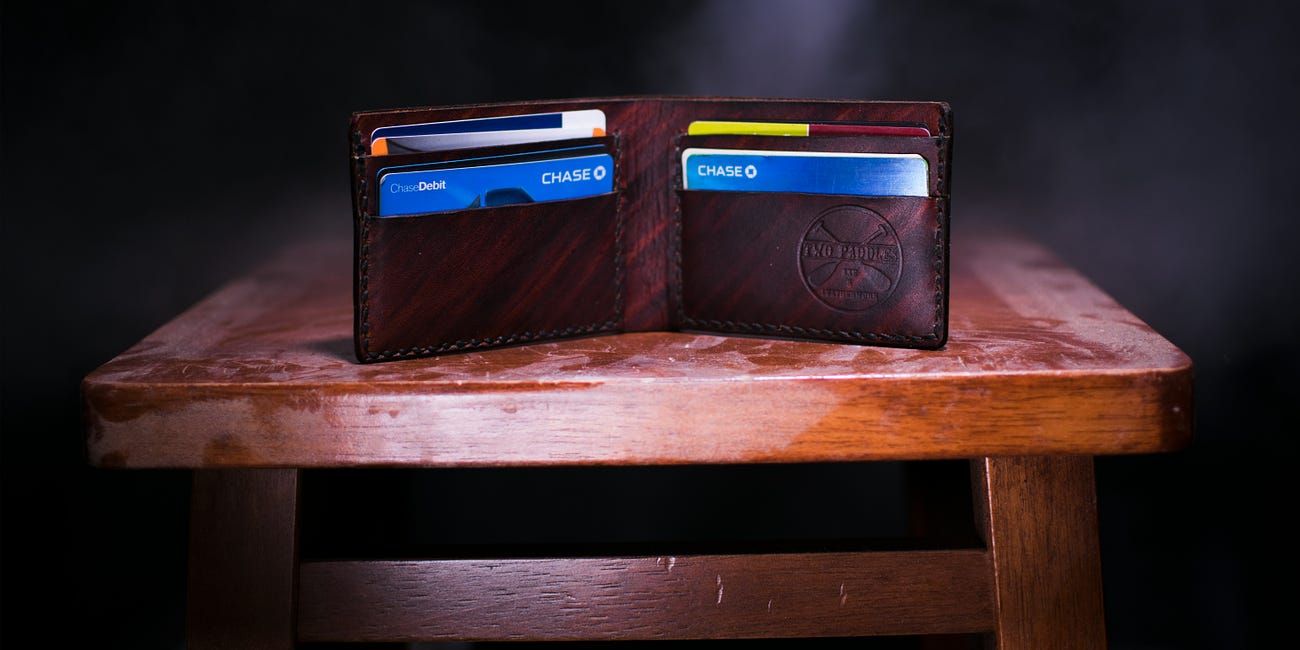A young professional recently asked me how to use a credit card, which caught me off guard.
Aren’t we all bombarded with credit card offers and financial tips every day? But then I realized: many young adults have never been taught how to use credit responsibly.
With so many financial gurus on the internet today, it’s easy to forget that not everyone has the guidance they need.
That’s the whole reason I started Money Talks — so that my daughter, Parker, would never have to navigate financial matters alone.
The unexpected question reminded me of how important it is to share the basics of credit card use, so others aren’t forced to make significant financial decisions without the right knowledge.
I use two credit cards: a Southwest Airlines Rapid Rewards Visa for everyday purchases, and a Shell Rewards Mastercard for gas. Both offer rewards I value, and I always pay my balances in full each month to avoid interest fees.
This simple approach has worked for me for years. I also set both cards on autopay, so I never have to worry about missing a payment.
I used to use my debit card for everyday purchases until I realized it didn’t make sense. I receive zero perks. Now, I rarely remove it from my wallet.
Settling my purchases via my Southwest Visa allows me to accrue airline points that I can use to book flights for free. I granted my loyalty to Shell in memory of my late grandfather, who retired from the oil and gas giant after more than 40 years with the company.
For the past two years, only gas charges have gone on my Shell card. In addition to honoring my grandfather, I love that it gets me a 10 cents discount at the pump on each fill-up, sometimes more.
My method is relatively basic when compared to other approaches. But remember, I’ve designed my life to be simple. My approach works for me.
If you’re unfamiliar with credit, you should research important terms like APR, credit utilization, balance transfer, credit limit and credit score.
But for those who need a crash course in credit cards, here are five essential tips you can use to safeguard yourself from a credit nightmare.
Set a monthly budget and stick to it
Before relying on a credit card, set a monthly budget and stick to it. Track your income and expenses, and only charge what you can afford to pay off in full. Budgeting tools like You Need a Budget and Goodbudget can help you stay on track. Many credit card companies now offer a “spending cap” feature, which allows you to set limits on your charges to prevent overspending.Maintain a simple strategy
You might be tempted to sign up for every credit card offer you receive in the mail or online. Don’t be. There’s no need to complicate your credit with several cards. Stick with one or two cards with perks that suit your lifestyle — whether it’s airline miles, hotel points, gas discounts, restaurant rewards or cash back. Keep things simple to avoid excessive debt. Also make sure you’re aware of any fees or interest rates before you commit.Pay on time to prevent late fees and interest charges
APR stands for annual percentage rate. It’s the interest rate you’ll pay on any unpaid balance, and it can be incredibly high. For example, the APR on my Southwest Visa is 19.74%. Let’s say I have an unpaid balance of $1,000. I’d be charged $16.22 in interest after one month. That’s why I pay my balance in full each month.
It’s not just costly late fees and interest charges that can wreck your financial picture. A few missed payments can ruin your credit rating, making it harder to get approved for loans or mortgages in the future. To prevent falling into that unenviable cycle, do yourself a favor: pay your bill on time.Pay more than the minimum payment
Fun fact. Credit card companies are required by law to warn you, in writing, of the dangers of making only the minimum payment each month. That’s how punitive minimum payments can be.
If you make only the minimum payment, you’ll end up paying significantly more in interest, and it’ll take a lot longer to pay off the balance. I would encourage you to pay more than the minimum, and if possible, pay off your balance each month.Be mindful of impulse purchases
It’s incredibly easy to overspend with credit cards, especially when you’re making impulsive purchases. You must be diligent to avoid the trap. That little plastic card can trick you into thinking you can afford things you don’t actually have the cash for. Instead, maintain your financial discipline. Plan for your desires by saving for them instead of spending spontaneously. Trust me, you’ll be glad you did when your credit card statement arrives.
Disclaimer: The information contained on Money Talks is not intended as, and should not be understood or construed as, financial advice. I am not an attorney, accountant or financial advisor. These are my personal experiences, and neither this website, newsletter nor podcast is a substitute for advice from a qualified professional.









Great advice, Darnell. I would tweet out this column, but I don’t use Twitter anymore. Blame Elon the Immigrant!